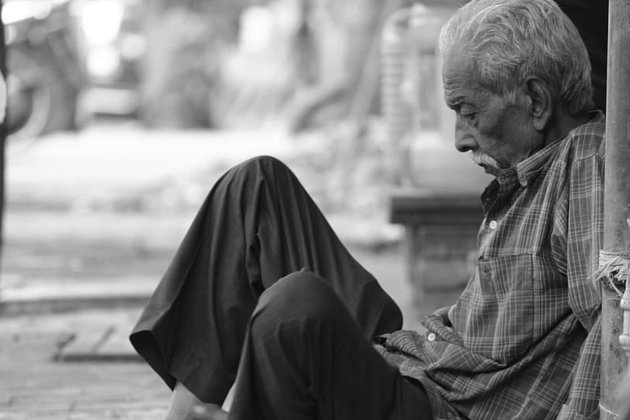
Inequality and poverty make the coronavirus more difficult to manage, which should make us rethink the world’s social and economic order, writes Tomo McKinnon.
MANY HEALTH EXPERTS and politicians including New York Governor Andrew Cuomo have warned us that COVID-19 is a “great equaliser“. This is because anyone can spread the disease and it has dire consequences for everyone around the world.
In response to President Trump’s announcement of halting funding to the World Health Organisation (WHO), Director-General Tedros Adhanom Ghebreyesus reiterated this message, stating that the disease “does not discriminate between rich nations and poor, large nations and small, nationalities, ethnicities, or ideologies”.
Dr Tedros is right to emphasise this. The United States and many countries in Western Europe are wealthy and have also been hit hard by the coronavirus outbreak. Indeed, some notable world leaders and celebrities have contracted the virus, including Prime Minister Boris Johnson who emphasised that his stint in intensive care “could have gone either way”.
He stated that:
Many have criticised this argument, that the Coronavirus “does not discriminate”. One article from the Guardian’s Kenya Evelyn has pointed out that the virus has clearly impacted the United States along racial lines. Many African Americans face a greater risk of exposure to the virus and are more likely to have other health complications than their non-black neighbours.
In states like Louisiana, African Americans make up thirty per cent of the population, while accounting for over 70 per cent of coronavirus deaths. Dr Tedros is, of course, correct to clarify that no one is exempt from the virus, but Evelyn makes an important point, that the coronavirus does impact some groups disproportionately.
Indeed, we may never know the extent of coronavirus cases in countries suffering from extreme poverty, because of the grave shortage of coronavirus test kits.
In such circumstances, a lockdown is not only undesirable: it’s impossible.
For example, the Government of Malawi recently declared a 21-day lockdown. But according to Al Jazeera, thousands of traders have protested the ban, as they have competing concerns, including how they will feed themselves and their families without work. In fact, the High Court of Malawi invalidated the lockdown, declaring that the Government failed to make adequate provision for the welfare of the poor.
Mumbai, India’s largest city, has also seen recent protests from migrant workers who are concerned about their economic security. Thousands of people have turned out to protest the restrictions on their work. Despite the advice surrounding “social distancing” advice, they have grouped together, attesting to their desperation to work and their economic precarity.
Despite directing his concern to the United States, Dr Tedros’ description of the coronavirus as a borderless disease also strongly relates to India, a country with extreme wealth disparity. It is a nation that houses over one hundred billionaires among tens of millions of slum-dwellers.
This situation creates a paradox. Whilst some support a national lockdown, others have little choice but to go to work if it will mean food on the table. But for the wealthy, the poor can still be transmitters of the disease. In this sense, COVID-19 breaches many time-tested class barriers.
Now, those who can afford to socially isolate are still at the mercy of those who cannot.
This situation is an example of how it could be in our own personal interests to alleviate extreme poverty. For many years it was unethical, but nonetheless possible, for wealthy nations or individuals to ignore the health crises faced by the world’s poor.
But the COVID-19 outbreak is an example of how universal healthcare and the abolishment of extreme poverty aligns with our own selfish interests. If people cannot afford to stay indoors and avoid work in impoverished countries, they will likely spread the disease to others.
Even in the U.S., the wealthiest nation on the planet, we have seen that many cannot afford to properly self-isolate. The poor living standards of the disadvantaged have contributed to the demise of the global economy, and even the richest men and women have felt the impacts.
India and the United States stand as particularly useful examples of what could unfold worldwide. Indeed, events in these countries have major consequences for Australia too, as a country which is heavily reliant on the global economy.
Without a global lockdown, it is unlikely that the virus will simply fizzle out. Further, we are yet to produce and deploy a vaccine to eradicate the virus. There are many reasons to donate to effective charities that promote human health and reduce extreme poverty. But perhaps the coronavirus pandemic will teach us that this can be done in our own self-interests, too.
Tomo McKinnon is a history and Italian student at the University of Melbourne. He is interested in teaching, law, and global politics.
